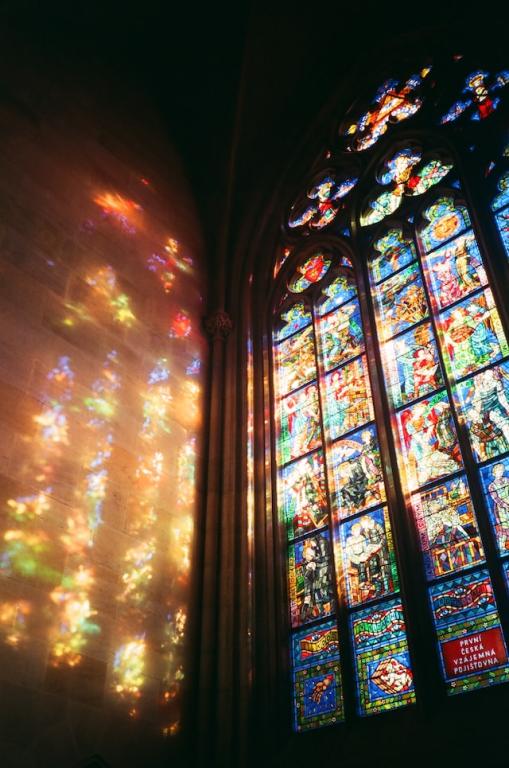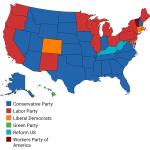
Throughout the summer, my wife — The Reverend Canon Natalie Van Kirk — and I have been preaching a series on the subject of doubt. We have been addressing both the subject of doubt itself and the questions that are often the source of trying questions for Christians, as well as others. Obviously, none of these articles are exhaustive but we hope that they will be a helpful stimulus to your own thinking.
Natalie writes:
Our savior God…intends that all human beings shall be saved and come to a full knowledge of the truth.”
1 Timothy 2:3-4, Translation by David Bentley Hart
“Does God Love Only Christians?” I think this question is really a more polite way of asking the question, “Is everyone who isn’t a Christian going to burn in hell?” In a world and a country where there are many religions and many who have no religion at all, this is an important question. The short answer is, “No,” but not perhaps for the reasons you might think.
When I was in Middle School and High School most of my fellow students were either Catholic or Jewish. There just weren’t many Protestants. And, across most of the country, that sort of mix – Catholic, Jew, and Protestant – was as exotic as the diversity got. Yes, there were Buddhists, and maybe even Muslims in the big cities on the coasts. Who knew who lived in New York or San Francisco? I was to find out later that in some parts of the country the fact that I knew, much less dated, Jewish boys was actually exotic in the minds of many of my friends from the middle of the country.
At any rate, this business of who Jesus liked and who would be saved was of huge importance to those of us who were Christian and were trying to put together our own faith. We tried not to involve the Jewish kids because we really did not know what to do about them—especially since many of the them were the children and grandchildren of Holocaust survivors.
The Protestant kids, however, had few qualms about tackling the Catholic kids with the question, “Do you really believe that everyone who isn’t Catholic is going to hell?” Our ignorance of each other’s traditions and the Bible was the fuel for our questions.
You see, we Protestants “knew” that Catholics actually worshiped Mary and not Jesus, that they bowed to their priests because they worshiped them too, and that they had idols in their churches that they prayed to rather than God. How they could think we were going to hell was pretty strange when they had all that against them.
The Catholic kids, on the other hand, “knew” what they had learned in Catechism. Protestants had broken from the true church and, therefore, from Jesus and that meant they were separated from the salvation found in the church that truly belonged to Jesus Christ. It wasn’t until the late 70s and early 80s that the Catholic church changed its teaching on Protestantism and allowed that Protestants did, in fact, worship Christ and could be saved. It would still be better to be Catholic, but God loved Protestants, too.
Protestants are still split on the issue of Catholics and salvation. Among the more mainline traditions, being Catholic has ceased to be an issue around which one could be denied salvation. But, in a lot of Protestant traditions—especially those that grew up in the United States—Catholics are still beyond the pale, misguided and tending to worship idols and Mary.
I have no intention of trying to settle disputes rooted in the Reformation more than 500 years ago. Obviously what some Protestants and Catholics think about one another is completely wrong and rooted in ignorance. But, I tell you that story because whenever Christians have come into conflict with other Christians or with other religions, there has been a tendency to pull up the ladders, slam and bar the gates, and deny the benefits and salvation of Christ to anyone who did not believe exactly as our tribe of Christians did. Whenever Christians have felt like they were fighting for their survival everyone outside of the community has been sure to be going to hell.
This tribal reaction is also much in evidence in the Old Testament. If ever there were a persecuted people struggling to survive it is the Jews of the Old Testament. That history and biblical stories of the hostility between Israel and its neighbors were great support for Christians who felt themselves under threat.
Since the Enlightenment, some 300 or so years ago, there has also been a racial element to many of these intra-religious and inter-religious conflicts. The racial element was a result of the philosophical insistence on rationalism and the scientific method. Rationalism was often twisted to mean, “Everyone worth considering thinks like we do.” And the Scientific Method meant other human beings could be studied like elephants and assigned demerits for the differences in technological development as well as moral standards.
Enlightenment thinkers also confused technological advancement with wisdom and superiority. We do the same today. The generations that did not have penicillin, light bulbs, and the iPhone are regarded as hopelessly benighted and without anything they can teach us. This human tendency to disregard the past and those who are different cuts us off from valuable insights and understanding.
One of the great philosophers of the Enlightenment, David Hume, was quite explicit about this “let’s study them like elephants”-way-of-viewing others. In his study of the various races of human beings, Hume concluded that only northern Europeans—which meant everyone north of the Alps and west of the Danube—were the most highly developed and superior race of human beings and that all others were deficient in one or more ways. Spaniards, Italians, Greeks, Slavs, Russians, all Africans, Arabs, Indians, Chinese, Japanese, Native Americans, and any others you can think of were in need of greater or lesser degrees of improvement and stuck in greater or lesser degrees of barbarity.
There is nothing fundamentally Christian or good about such an attitude—Hume was, after all, an atheist—but it did appeal to universal sense that one’s tribe is better than all others, and that attitude found fertile soil in some parts of the culture. There were, however, Christians who insisted that these other peoples were just as human as anyone.
That Christian objection would lead to the abolitionist movement, and ultimately to the notion that there are such things as human rights—a definitively Christian and Western idea. In a roundabout, if not an always admirable way, that journey has led us and the Christian church back to the position that many of those in the earliest church took on the issue of who would be saved.
When the early Church teachers sat down to think about what it meant that there were so many in the world who did not believe and would not believe they faced a lot of problems.
- First, the Church was undoubtedly persecuted. Certainly, the persecutors were enemies of the Church. What was God going to do about them?
- Second, there were the Jews who refused to believe that Jesus was the Messiah – what to do about them?
- Third, if God created everything and pronounced it good, and instilled His image into every human being, how could God cast away so many? How was that moral or loving?
- Fourth: How should one understand Jesus’ and Saint Paul’s incorporation of Gentiles into the New Israel? Or Saint Peter’s and Paul’s insistence that God intends for all should be saved?
- Fifth: What about beloved spouses, children, and family members who never knew about the Messiah? What about those who sinned or refused the faith and continued to worship the old way?
None of those are easy questions.
One of the first things the early teachers discussed was the possibility that there might be some truths to be found in other religions. It seemed that there might be, but nothing like the fullness of truth revealed in the Incarnation and the life, death, and resurrection of Christ Jesus. So, other peoples and those of other faiths might have some of the truth, but not all of it by any stretch of the imagination.
Did this mean that any of the other gods were true gods? Not by any means. Some of them were clearly demonic, like Pan or Dionysius.
To put that in modern terms, human beings have an innate religious desire and sensibility and any other gods are only faulty representations of the True God. Depending on the distortion of that desire and sensibility, human beings may be drawn closer to the Truth or pushed further away by the gods they create.
Also, God had a covenant with Adam and Eve and with Noah, the parents of human beings. That covenant had not been eradicated with the covenant with the Jews. The covenant with the Jews built upon those previous covenants but did not eliminate them. Therefore, all human beings were still in some sort of relationship to God.
If human beings were still in some sort of relationship with God and bore the image of God, it was unthinkable that God should turn His back on most of them.
Then, through their experiences in prayer and in the liturgy, early Christians became convinced that coming to know God was a life-long journey that encompassed this life and the next. Knowing God was about understanding and transformation that increased throughout life. Because God is infinite the journey never ends. It only increased in delight and fulfillment
When we talk about what happens to us when we die, we will talk more about this endless journey. What is important here is their conclusion that God’s creating love and desire for human beings calls everyone into this journey, but not everyone will go at the same time or pace.
Does this mean that all religions get to the top of the same mountain and so there is no real difference between them, nor are those differences a matter of indifference to God? To think that all religions eventually lead us to the same place—whatever that might mean—trivializes the differences.
As Christians, we also believe that we have better, God-given answers to a long list of questions: The status of women; the status of children; the infirm; the imperfect; the goodness of all of creation; the availability and necessity of forgiveness; our responsibility to the poor and defenseless? The answers the church provide to these questions will help you to see that we are not all climbing the same mountain, at least not yet.
All that said, does God love only Christians? No. God loves all of His creation, even those who differ with us. This is why we are sent out into the world to share the love of Christ with everyone. Christ promises us that it is not the will of the Father that one of those given to Him be lost. All of creation came to be through Christ and so belongs to Him. Not one of them shall be lost.
















